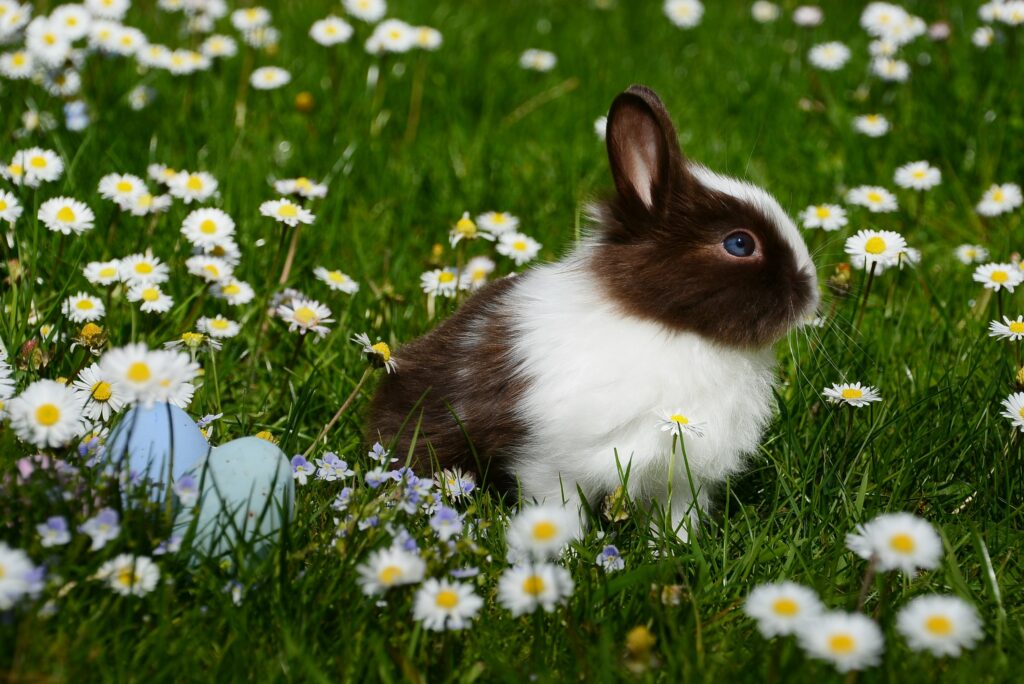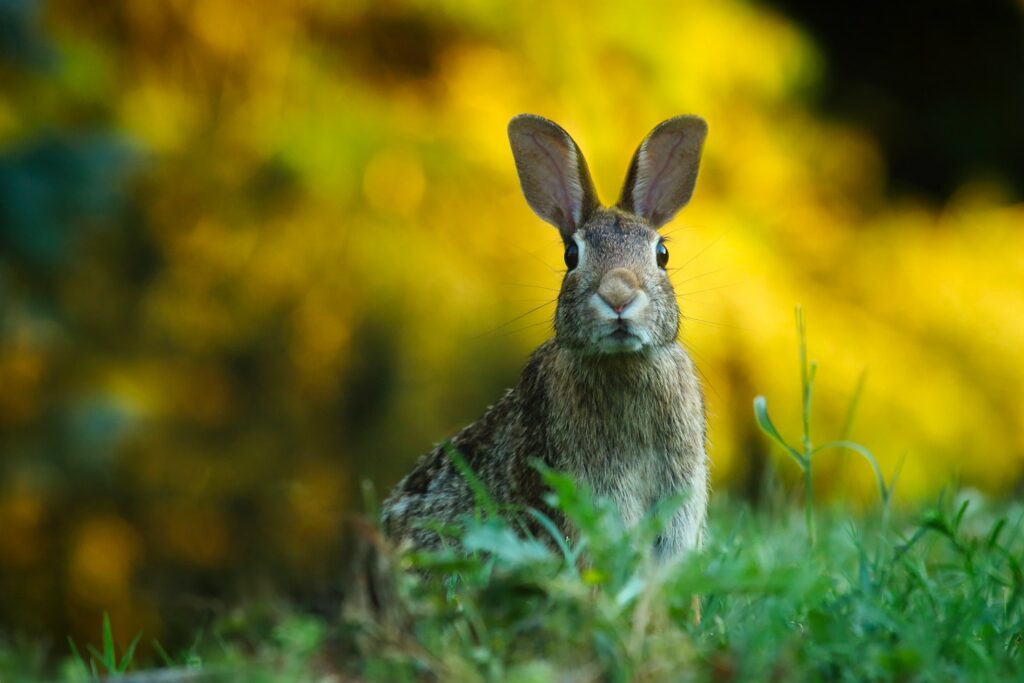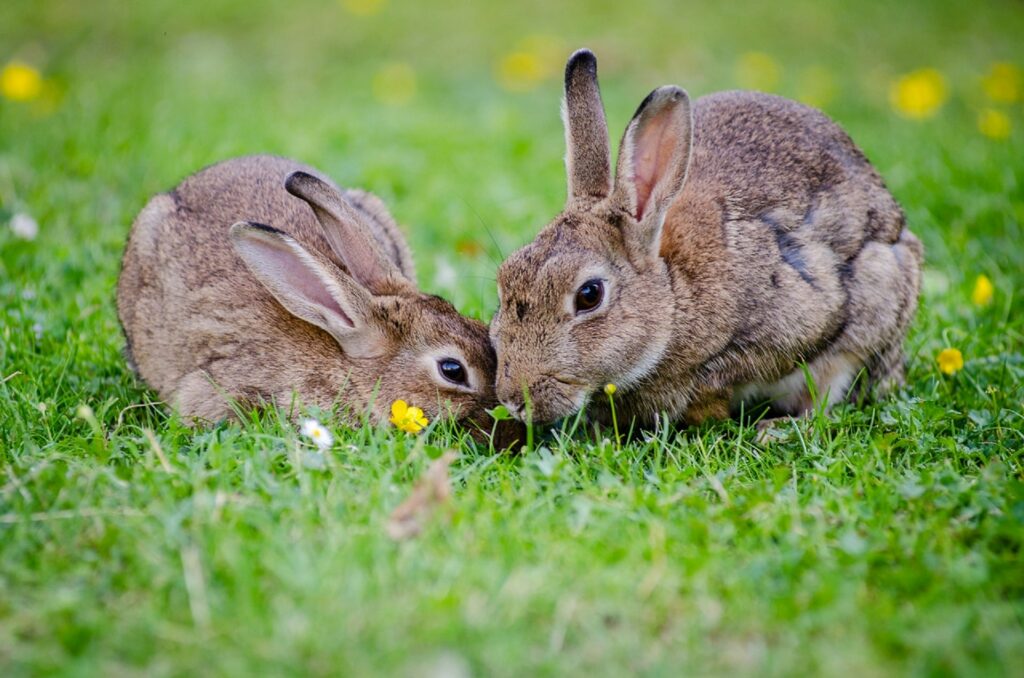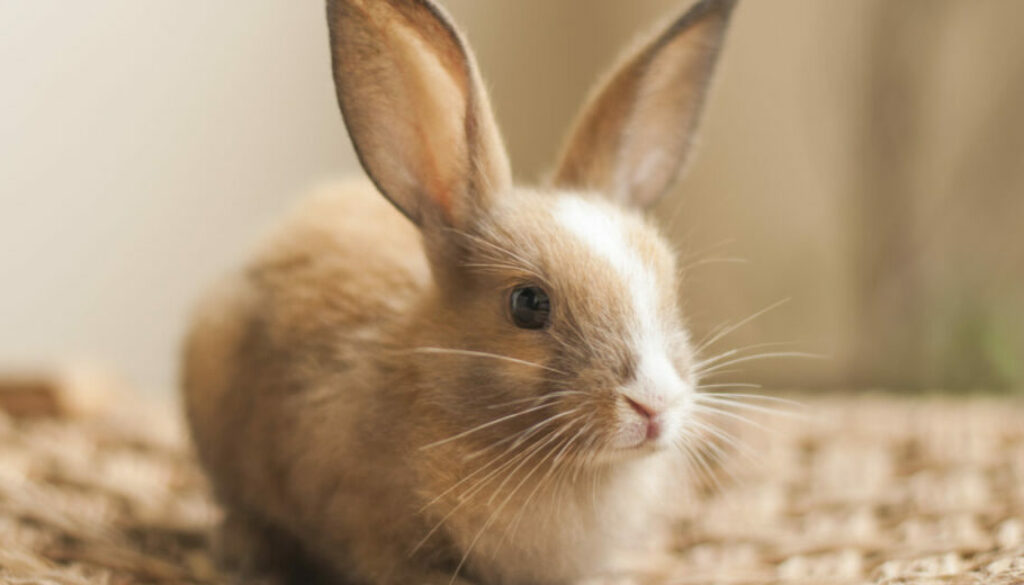Pet Care Tips for Rabbits for Beginners
Welcome to the wonderful world of rabbit ownership! If you’re a beginner eager to embark on the journey of being a rabbit parent, you’ve hopped onto the right track. Our “Pet Care Tips for Rabbits for Beginners” guide is your compass to navigate the ins and outs of responsible rabbit guardianship.
From setting up a cozy habitat and mastering the art of a balanced diet to decoding rabbit behavior, health cues, and the secret to creating a bunny-friendly haven, we’ve got you covered.

Amazing Pet Care Tips for Rabbits for Beginners
Housing
It is essential to give your rabbit a nice living environment if you care about them well. Choose a cage or hutch that is roomy enough to give them the freedom to stretch, stand on their hind legs, and walk about unrestrictedly.
To sustain fresh air circulation and provide a healthy atmosphere, adequate ventilation is necessary. Fill the bottom of the cage with soft bedding materials, such as hay or straw, for comfort and to absorb waste. For your rabbit’s hygiene and to avoid odor accumulation, the bedding must be cleaned often.
Diet
A healthy diet must be carefully crafted for your rabbit. Their food should be centered on fresh hay since it promotes weight loss, preserves oral health, and helps with digestion.
Introduce a range of leafy greens, such as romaine lettuce, spinach, and kale, since these provide vital nutrients. To avoid stomach distress, keep in mind to introduce new meals gradually.
Add high-fiber pellets designed exclusively for rabbits to their diet as a supplement. Mixtures with nuts or seeds should be avoided since they might cause health issues. Maintain a constant supply of pure water since maintaining sufficient hydration is essential for their overall well-being.

Safe Environment
It’s essential to provide your rabbit with a safe environment to prevent accidents and guarantee their general well-being. You must take action to protect your home against rabbits. To avoid electrical risks or damage from occurring, start by keeping electrical cables and wires out of your rabbit’s reach.
In addition remove any poisonous plants from your home as well, since rabbits have been known to munch on flora, some of which can be dangerous to them.
Watch out for little objects that your rabbit could eat. Because they are inquisitive animals, rabbits may consume things they shouldn’t and end up with blockages or digestive problems. Keep these things away from the ground and out of the enclosure. Having a designated play space with secure toys is also beneficial.
It’s crucial to provide them with a comfortable and safe environment inside their enclosure. Give them somewhere to hide out when they feel anxious or need some privacy, such as cardboard boxes or tunnels. These hiding places resemble their normal habitat, which eases them into the situation.
Grooming
Maintaining your rabbit’s comfort and general health depends greatly on proper grooming. In particular during times of seasonal changes when their hair can be more prone to shedding, regularly brushing their fur is crucial to avoid matting and minimize shedding.
In addition to keeping their fur in good condition, brushing your rabbit will help you two get closer. Additionally, you can check their skin and coat for any abnormalities.
Long nails may be uncomfortable for your rabbit and could be dangerous for their health. It is vital to trim their nails, but it takes time and effort. Consult a veterinarian or a trained groomer for advice if you’re not familiar with the procedure. They can show you the proper technique and provide assistance to avoid accidentally cutting the nails too short, which can be painful for the rabbit.
Water
Your rabbit’s health is mostly dependent on maintaining proper hydration. Rabbits require a constant supply of fresh, clean water to keep their biological processes operating normally. Use a dependable water container and place it in a convenient spot inside their enclosure.
It’s important to maintain constant watchfulness; make sure the water container is clean and full by checking it every day. To keep the water drinkable and accessible, refresh it as required. In addition to preventing dehydration, this regimen helps digestion and organ health, which ultimately improves your rabbit’s general well-being.

Social Involvement
Rabbits are social animals by nature, and they enjoy deep relationships. Investing time in your rabbit goes beyond simple companionship; it supports their mental and emotional well-being. A sense of security and decreased stress can be achieved by gentle caressing, stimulating playtime, and even quiet chats.
Regular interactions foster a close relationship between you and your rabbit by fostering trust and comprehension. You may enrich their lives and improve their quality of life by attending to their social requirements.
Remember that every encounter you have with them contributes to their overall pleasure since it helps to create a pleased and happy rabbit.
Healthcare
Prioritize your rabbit’s well-being by selecting a veterinarian experienced in rabbit care. Regular check-ups are essential to catch any potential health concerns early. Ensure your rabbit receives the necessary vaccinations as advised by the vet.
Stay attuned to changes in their behavior, appetite, or litter box habits – these can be indicators of underlying health issues that require prompt attention. A proactive approach to healthcare guarantees your furry friend’s longevity and happiness.
Exercise
Promote your rabbit’s vitality through exercise and mental stimulation. Allow supervised outdoor time in a secure, enclosed space where they can hop and explore safely. This not only fulfills their natural instincts but also provides exposure to fresh air and sunlight. Indoors, keep them engaged by offering a variety of toys and objects they can chew on, satisfying their need for mental and physical challenges.
By incorporating regular exercise into rabbits’ routine, you support their cardiovascular health and overall well-being.
Litter Training
Harness your rabbit’s innate cleanliness through litter training. Introduce a rabbit-safe litter box in a corner of their enclosure. Many rabbits naturally gravitate toward a specific spot for elimination. Encourage this behavior by placing hay in the litter box – rabbits often munch while using the box.
Reinforce positive behavior with praise or treats. Successful litter training enhances their living environment, simplifies cleanup, and strengthens the bond between you and your rabbit.
Handling
Master the art of handling your rabbit with care. When picking them up, support their entire body to avoid stress or injury. Cradle them gently but securely against your chest, allowing their feet to rest on your arm.
Avoid lifting by their ears or limbs, as these actions can be uncomfortable or even painful. This respectful approach builds trust between you and your rabbit, creating a positive association with human interaction.
Companionship
Recognize your rabbit’s social nature and consider introducing them to a rabbit companion. Social interactions with their own kind offer emotional enrichment and alleviate potential loneliness. However, approach introductions thoughtfully and under guidance.
Rabbits are territorial, and improper pairings can lead to stress or aggression. Consult with rabbit-savvy experts to ensure a harmonious partnership that enhances both rabbits’ lives.
In Conclusion
These essential pet care tips for rabbits are no less than a comprehensive guide for beginners. Remember that every rabbit is unique, so observe their behavior and preferences to tailor their care to their individual needs.
Regular attention, love, and proper care will help ensure a happy and healthy life for your pet rabbit. If you have any concerns, don’t hesitate to consult a rabbit-savvy veterinarian or experienced rabbit owner.
Also Read:
Pet Care Tips for Cats for Beginners
Pet Care Tips for Dogs for Beginners



